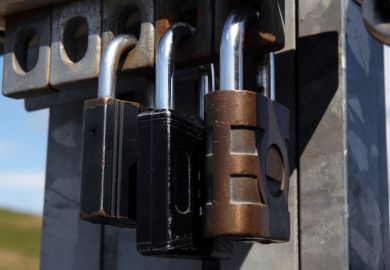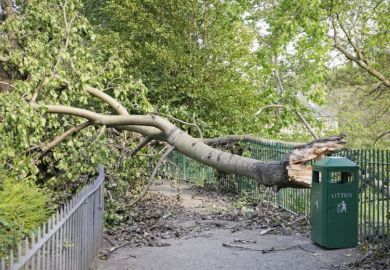Dozens of UK universities have been left facing major uncertainty about their student numbers for the coming term after last-minute changes to the handling of school exam results led to the prospect of thousands of grades being overturned.
The publication of A-level results in England on 13 August brought confirmation that more than a quarter of a million results had been downgraded from teacher estimates as part of a standardisation process brought in to calculate grades after exams were cancelled because of the coronavirus pandemic.
Before the results were released, institutions across the UK had already accepted almost 180,000 18-year-olds from England on to courses, almost 90 per cent of whom were applicants given places at their first-choice university.
But tens of thousands more applicants, and the universities they applied to, face uncertainty after missing required grades but potentially being able to go through an appeals process based on mock exam results, a change in policy announced by education secretary Gavin Williamson less than 48 hours before results were released.
Even many of those applicants already accepted on to courses – especially through an insurance offer – could end up going through an appeals process that allows them to switch institution, leaving universities holding open places now that might not actually be filled by the start of term.
Richard Harvey, academic director for admissions at the University of East Anglia, said “last-gasp alterations by ministers with a poor grasp of the details are never welcome, but in this case they have caused huge anxiety among applicants”.
He said “almost everyone” he had spoken to on results day was considering an appeal, but with the specific details of the process yet to be decided it was unclear how it could affect admissions across the sector in the coming weeks.
“As far as I can tell, applicants are laying siege to careers teams in schools in the hope that [they] will be able to decipher Mr Williamson’s gnomic announcement,” Professor Harvey said.
Chris Shelley, director of student and academic services at the University of Greenwich, said his institution was holding open places for candidates who had missed their grades but were hoping for an appeal, while also aware that some applicants placed at the university through an insurance offer might end up switching back to their first choice if their grades rise.
“The phone lines [have been] busier than normal and largely because…we are seeing a significant inflow of queries from students who want to appeal or are simply confused by the whole process,” he said.
There were also concerns that the most selective universities might have already accepted many applicants who just missed their grades, a move that could leave some lower-tariff institutions struggling to fill places in the coming weeks.
This was exactly one of the scenarios that a cap on undergraduate numbers – introduced to create “stability” in student numbers amid the pandemic – was meant to avoid.
Even before results were announced, acceptances for higher-tariff universities were up by 7 per cent on last year, and there could be the prospect of those who did miss out on a place appealing and being accepted later.
Professor Harvey said the student number control was a “relatively weak mechanism” because it was based on forecast growth in demand, with many universities guided in reality by a “hard limit” on course numbers determined by factors such as making sure campuses were “Covid-secure”.
“I have seen some modelling that implies that the high-tariff universities can indeed impoverish lower-tariff universities. I hope I am wrong, but the omens are not good,” he said.
Register to continue
Why register?
- Registration is free and only takes a moment
- Once registered, you can read 3 articles a month
- Sign up for our newsletter
Subscribe
Or subscribe for unlimited access to:
- Unlimited access to news, views, insights & reviews
- Digital editions
- Digital access to THE’s university and college rankings analysis
Already registered or a current subscriber?








